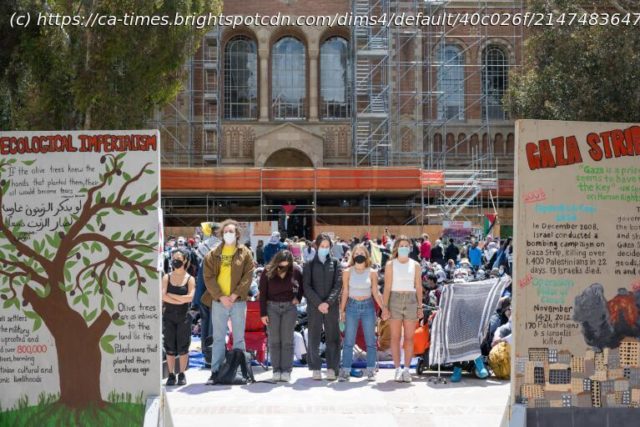It’s become popular to blame the antiwar movement for prolonging the Vietnam War and electing Richard Nixon. That’s misguided.
When did it become fashionable to diminish the accomplishments of Vietnam War-era protesters by accusing them of inflated self-regard and delusions about what their activism accomplished?
In my view, the situation in the Mideast is more nuanced and complex than the United States’ involvement in Vietnam ever was. Israel’s horrific response notwithstanding, I fear that many pro-Palestinian student activists are naively unwilling to confront the role that Hamas and its allies have played in the conflict.
But telling students that their agitation is pointless or merely performative because some folks have doubts about the effectiveness of the anti-Vietnam War movement is just wrong.
“Those students didn’t shorten that terrible war,” wrote New York Times columnist Nick Kristof about the protesters of the late 1960s. “Instead, they probably prolonged it.”
“The nostalgic champions of the campus protests of the ’60s would have Americans believe they were a heroic success, stopping the Vietnam War,” wrote Jonah Goldberg in the Los Angeles Times. “But what they actually helped achieve was Richard Nixon’s election and seven more years of war.”
There is certainly some truth there.
Americans chose Republican Richard Nixon over Democrat Hubert Humphrey in 1968, at a time when urban uprisings and all kinds of political turbulence had exhausted voters. The Democratic Party was in disarray after President Lyndon B. Johnson declined to run again, Robert Kennedy was assassinated and the peace candidate, Eugene McCarthy, failed in his quest for the Democratic presidential nomination at the party convention. Nixon, after all, famously courted that “silent majority” of presumably politically moderate Americans.
Home
United States
USA — mix Don’t denigrate pro-Palestinian campus protests by claiming the Vietnam War protests backfired






